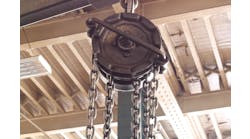Endress+Hauser reported June 17 that 35 of its Open Integration partners gathered recently at its headquarters in Reinach, Switzerland, to share their experiences and thoughts. One event highlight was a presentation by chemical and pharmaceutical industry representatives outlining how they benefit from the partner program as they digitalize processes and what they'd like to see in the future.
The goal for the Open Integration program is simple, fast and manufacturer-independent integration of components and devices into automation systems, as well as customer satisfaction. This is because digitalization requires integration of digital communications before intelligent field devices and systems can be implemented.
As part of its Open Integration program, Endress+Hauser is inviting providers of control technology, fieldbus infrastructure, measurement technology and actuator systems to test and document the interaction of their products even more extensively to assist users. These cooperation partners include Auma Riester, Bürkert, Festo, Flowserve, Hima Paul Hildebrandt, Honeywell Process Solutions, Mitsubishi Electric, Pepperl+Fuchs, Phoenix Contact, Rockwell Automation, Schneider Electric and Turck.
The foundation of their effort is open communication standards, such as HART, Profibus/Profinet, Foundation Fieldbus and EtherNet/IP, as well as open integration standards, such as FDT, EDD and FDI. With nearly unlimited options, reference topologies represent practical combinations suitable for applications in chemical, life sciences, food/beverage, oil/gas, power/energy, primaries/metal and water/wastewater industries. These reference topologies take into account typical industry requirements, such as explosion protection, availability and redundancy. Each topology is thoroughly tested and documented in Endress+Hauser's lab in Reinach in conjunction with the partners, after which the recommendations are published.
The company reports that participants benefit from the Open Integration partner program because every problem that its integration experts discover prior to commissioning can be resolved at a much lower cost compared to fixing the issue later in the field. Users receive concrete, validated recommendations for automating their systems, which go beyond established conformity and interoperability testing, while ensuring seamless integration. This also helps them save time and money.




